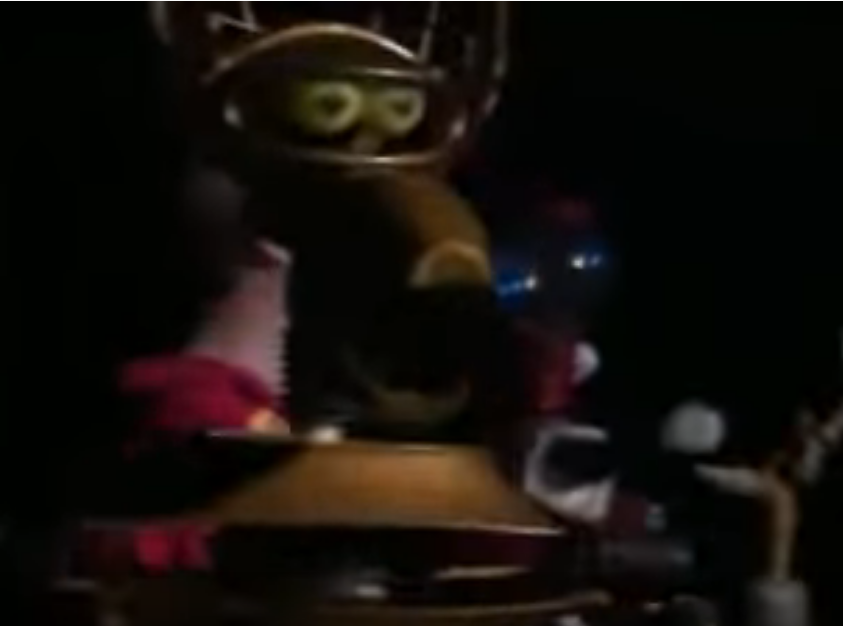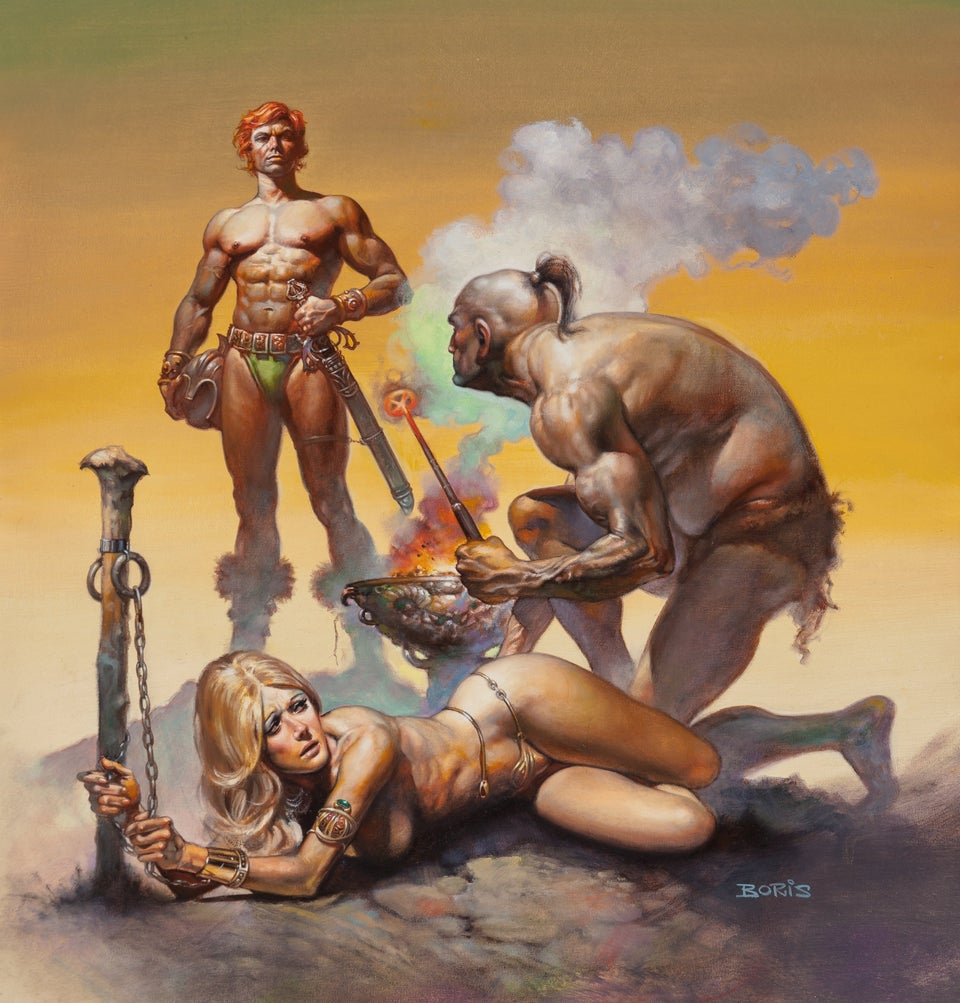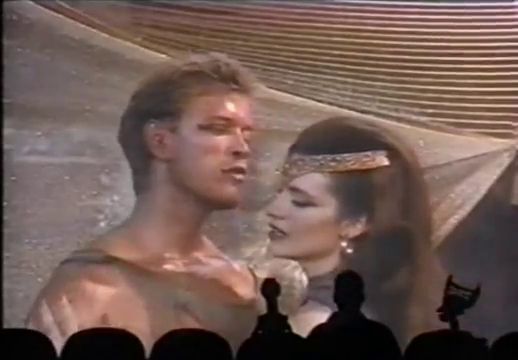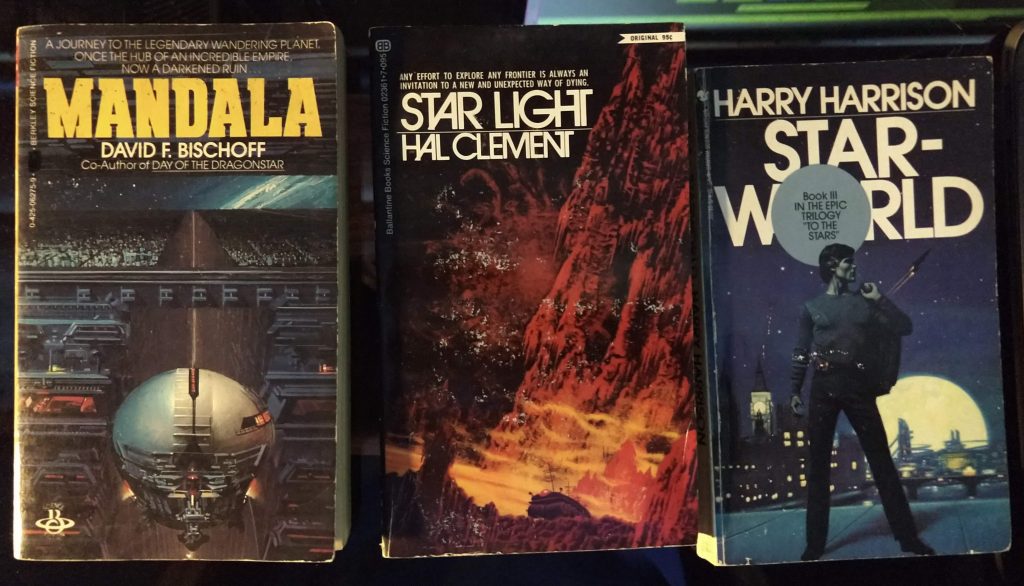I just watched this on MST3K. Their marathon station on PlutoTV (channel 385) is constantly on in the background when I work from home, and so it often bleeds over to the weekends. The humor of the series is not as frequent as when I originally watched in college, but the banter between Joel, Mike, and the robots is like TV comfort food. Even just looking over to see Crow gab at the screen can lighten an oppressive day. That charm is their staying power.

There were 35 books from 1966 to this 2019 (!), and two movies: Gor (1987) and Outlaw of Gor (1988). The books are well known for their S&M and misogyny and are an egregious rip-off of both Conan the Barbarian and Edgar Rice Burroughs’ Barsoom series. The latter is pretty dated and contains its own “quaint” views of women, but those views are explained by the early 20th century publishing date. The Gor novels began being published during the heyday of 2nd wave feminism, so they are more of a push toward for a more subservient time rather than a “grandpa just doesn’t know better” moment.
The main character is a college professor (Tarl Cabot) who gets transported to a parallel Earth that is stuck in some Conan world. There, he becomes a brave warrior saving/having his way with slave women and generally alpha-maling it up. The author (John Norman) of the books is a college professor (John Frederick Lange, Jr.) who has decidedly not been transported to the land of subservient slave women, but can at least Mary Sue his way there.



Reading randomly through the Goodreads reviews, I found Jason Pettus’s review of Outlaw, which linked to his review of Tarnsman, the first Gor novel, and why he started reading them. He had been the owner of the now defunct Chicago Center for Literature and Photography, author of a few books, but took on the noble task of experiencing all that is Gor. Or at least all he can stomach:
I’ve decided to finally tackle John Norman’s infamously sexist series of “Gor” S&M erotic fantasy novels, which I first developed a fascination for in 2006 when I spent a year playing Second Life, and met a group of literally hundreds of people (men and women, young and old) who were there specifically to persistently roleplay in a Gorean setting 24 hours a day, in some cases to supplement a quasi-Gorean lifestyle they were living in real life as well. I’m basically going to be reading as many of the books as I can stand before I get sick of it all (I doubt I will make it through all 34 [ed. now 35] of them)
Links for reference:
- Goodreads
- Goodreads (book series)
- IMDB (Gor)
- IMDB (Outlaw of Gor)
- Wikipedia (movie)
- Wikipedia (book series)
Bonus: their song about the almost-nudity in the film.
Tom Servo: Hey fellows, there sure is a lot of skin in this movie.
Mike: There sure is!
Crow T. Robot: Yet despite all the acres of flesh in this film, I just can’t come up with a word to describe it.
TS: Well I can!
CTR: You can?!
TS: Sure…
High Art ensues:
Update 30 Jan 2020:
I couldn’t help myself because I’m a 14-year-old boy:
Tom Servo:
Iiiiiit’s
Breastica boobical
Chestica mamical
Pendular globular fun.Mike Nelson:
Fleshical orbital
Mombula scupula?TS:
Right, all of that’s the one!Crow T. Robot:
Is it guleal maximal
Tushical crackula
Buniona morning till night?TS
Well you’re absito glandular
Fanny fantastical
Mastica fleshular right!All:
It’s an aereological auto-erotical
Tubular boobular joy.
An exposular regional
Vagical pouchular
Fun for a girl and boy.
Oh it’s sisimal dorsical
Hung like a horsical
Calavaligical ball!CTR:
The most bunula funula…MTN:
Fruita baloobula…CTR:
Frenchical toungular…TS:
Wabida boobular…(unintelligible closing chorus while Tom Servo sings:)
Bunula funula
Fruita baloobula
Frenchical toungular
Wabida boobular…
